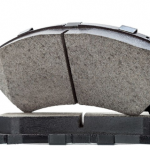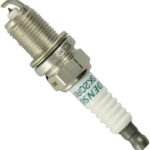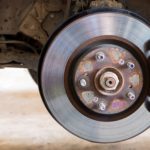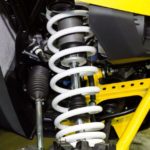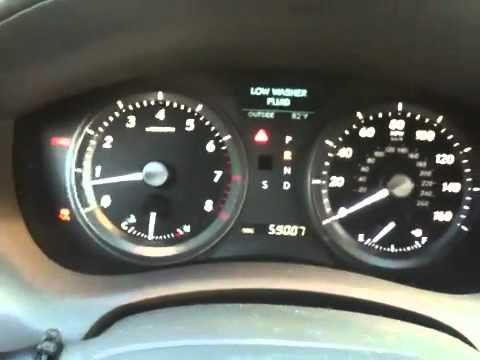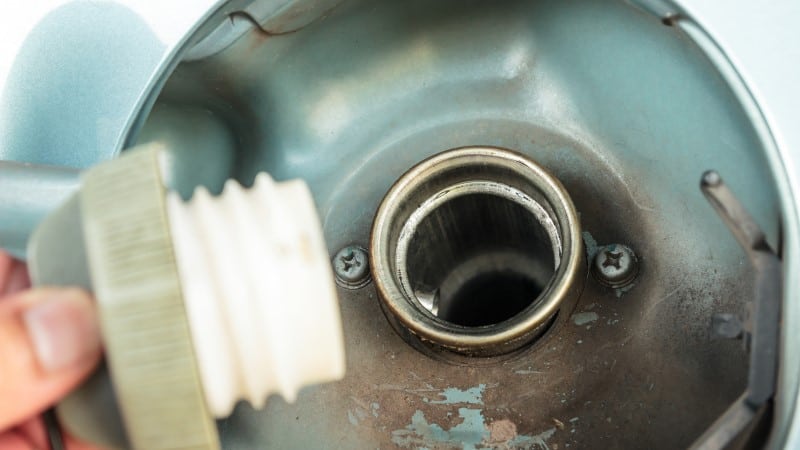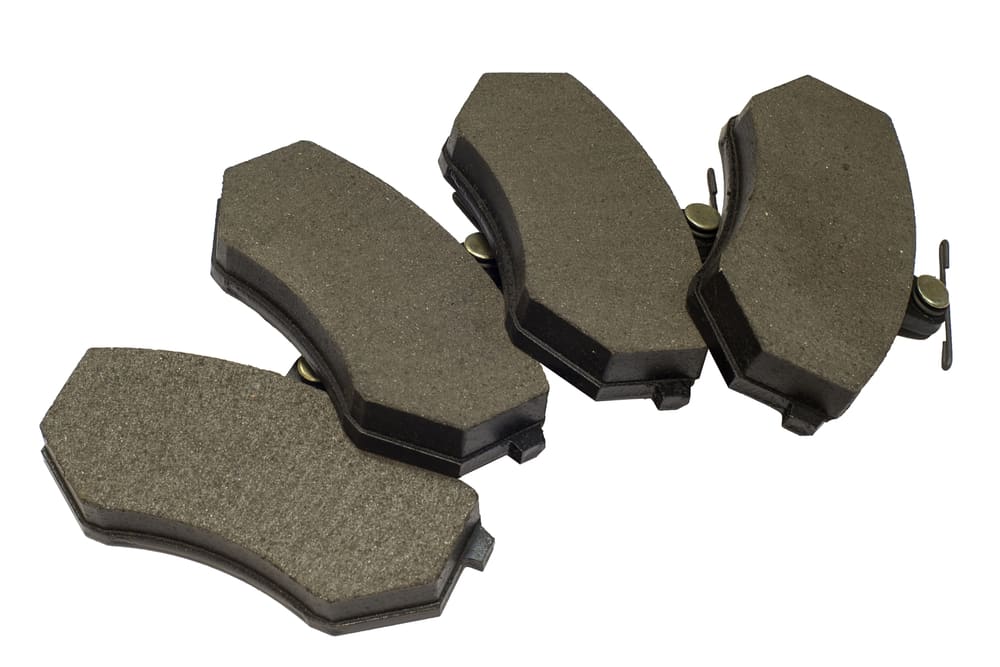
How Does Brake Pads Work?
Through friction, brake pads convert the vehicle’s kinetic energy to thermal energy. The brake contains two brake pads, one on each side of the rotor, with their friction surfaces facing the rotor. The caliper clamps or squeezes the two pads together onto the spinning rotor when the brakes are applied hydraulically to slow and stop the vehicle. When a brake pad heats up from contact with the rotor, minute amounts of friction material are transferred to the disc, producing a dull grey covering. The friction material on the brake pad and disc “sticks” to each other, generating the friction that stops the car.
Read also: Noise From Front Wheel When Driving
In disc brakes, each disc rotor normally has two brake pads. A caliper mounted to the wheel hub or suspension upright holds these in position and activates them. For best performance, racing calipers can use up to six pads with various frictional qualities staggered in a staggered pattern.
Disc wear rates vary depending on the material’s qualities, the vehicle’s weight, and the speeds at which it is driven. To avoid brake fade, brake pads should be replaced on a regular basis (depending on pad material). Most brake pads have a system that alerts the driver when it’s time to replace them. Manufacturing a small center groove whose ultimate disappearance due to wear signifies the end of a pad’s service life is a popular practice.
Other methods include inserting a tiny strip of soft metal into a groove, causing the brakes to screech audibly when exposed (due to wear). When the brake pad wears thin, a soft metal wear tab inserted in the pad material closes an electronic circuit, igniting a dashboard warning light.
How Long Do Brake Pads Last?
The truth is that determining how long brake pads should last is a difficult task. That’s because every driver and driving style is different, just as certain driving behaviors might burn gas more quickly than others. Quick starts, short excursions, and city driving all consume more petrol than steady and smooth interstate cruising.
Your brake pads follow the same fundamental idea. The effective “life” of brake pads is normally between 25,000 and 65,000 miles, depending on the manufacturer. However, the method you drive has a significant impact on brake pad wear. Consider the following four ideas if you want to get the most mileage out of your brake pads.
How To Make Your Brake Pads Last Longer
Reduce Your Load: When you’re hauling a hefty weight, your brake pads have to work harder to stop your car. When you’re driving around with friends or moving furniture, you can’t always prevent it. You can, however, prevent it at other times! Remove anything unnecessary from your trunk, backseat, and/or roof cargo carrier to give your brakes a well-deserved rest. With less weight, you may be able to enhance your fuel economy as well!
Always Slow Down: Driving fast and braking quickly go together like peanut butter and jelly. Fast braking generates a lot of friction, which causes brake pads to wear out faster and reduces their lifespan. Driving fast consumes more gas, therefore you’ll be wearing out your wallet as well!
Avoid Riding Your Brakes:
Are you descending a steep slope? Don’t completely depress the brake pedal. Instead, if you wish to slow down your roll, downshift (if you drive a manual) and work on honing the art of coasting (if you drive an automatic).
Feeling sluggish? The brake pedal’s purpose is to stop your car, not to serve as a footrest. Yes, this is something that people do. Yes, squeezing the brake pedal can damage your brake pads and limit their lifespan! It also confuses drivers behind you because softly tapping the brake pedal triggers your brake lights. Instead, place your foot on the far left-hand floorboard.
Use Engine Braking Method: Take your foot off the accelerator when you notice that you’ll have to brake soon, whether it’s due to a red light or heavy traffic. When you do have to stop, this will deactivate the engine and lighten the load on your brakes. Engine braking, as the name implies, is a technique for slowing your car without using the brakes. This means your brake pads and brake system will last longer and generate less heat.
Read also: Why Car Vibrates at Certain Speed
How Much Does It Cost To Replace Brake Pads?
The typical cost of replacing brake pads is roughly $150 each axle, but depending on the materials used in your vehicle’s brake pads, this cost might jump to over $300 each axle. Organic material is used in the least cost brake pads.
How Do I Know If My Brake Pads Are Worn Out?
If your brake pads are worn, you may hear screeching while braking, feel heavy vibrations, or notice your car pulling to one side as you apply the brakes. It’s also possible that your brakes are taking longer than usual to slow your automobile down. A warning light will also alert you to any wear and tear issues.
When Should Brake Pads Be Replaced?
Manufacturers have varied recommendations for when brake pads should be replaced, but as a general rule, new brake pads should be installed when only 20% of the original thickness remains. Others claim that when the pad is down to 3/32 of an inch, it’s necessary.
Should All Four Brake Pads Be Replaced At Once?
Should you replace all four brake pads at once? First and foremost, you must replace both front and rear brake pads at the same time. Unless something is seriously wrong, they should be wearing out at roughly the same rate.
What Happens If I Don’t Change My Brake Pads?
If you neglect your brakes, the pads and rotors may wear out and become faulty, as well as a variety of other components. To slow your car, these components work together as a team. Your disc brakes can fail if one or more components stop operating.
Is 2mm Bad For Brakes?
Although 2mm is worn, they will not wear out the rest of the way in a weekend. Take your vacation and have the brakes serviced when you return. Also, 650 is a bit pricey for just one axle, but not so much for all four brakes.
This is how far we can go on this article; How Long Do Brake Pads Last? I believe you’ve been able to find answer to this question.

